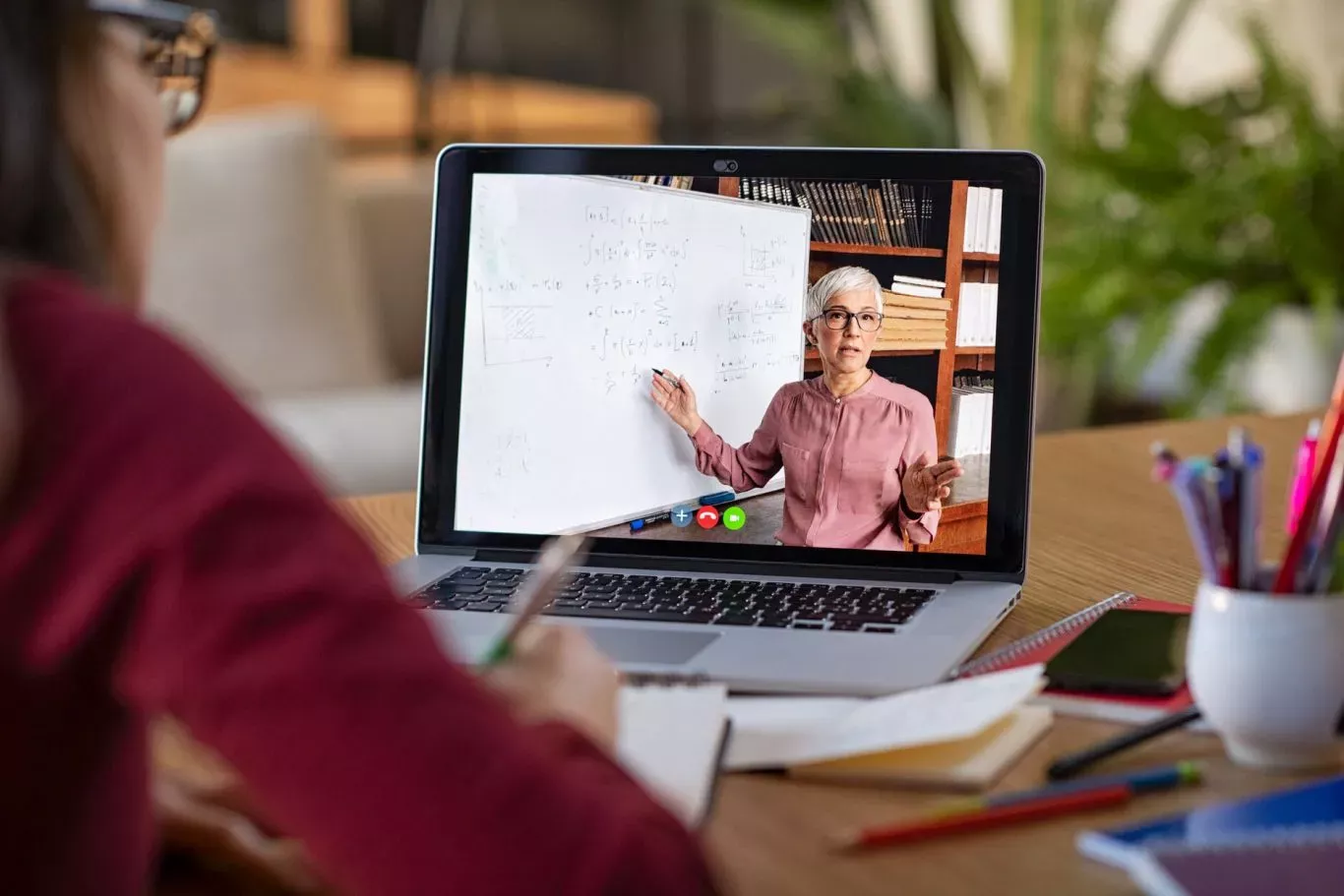
Dan Levy, Harvard: Set learning objectives for your classroom
Dan Levy highlighted the stages of the educational process that every teacher should know. Dan Levy presents the principles for innovative pedagogy.
- Dan Levy, Harvard: The most common mistakes most teachers don't realize they are making
- Dan Levy urges us to build our teaching design around three steps
- Innovative principles in the teaching-learning process
- What better way to explain the principles of innovative learning than through direct application?
- Who is Dan Levy and what new things we learned from him
Dan Levy, a renowned Harvard Kennedy School professor, who has dedicated his work to distance education as well as classroom activities, was recently the guest speaker at a conference organized by our friends at the Association Ține de Noi. During the event, Dan Levy highlighted the stages of the educational process that every teacher should know. Also then, the teacher pointed out in an applied way, what are also the principles that underlie an innovative teaching-learning process.
We often talk about innovation in learning and many people use this concept without knowing what it means or how we can practice innovation-based teaching in the classroom or online work.
Dan Levy, Harvard: The most common mistakes most teachers don't realize they are making
Dan Levy honestly confesses a few mistakes he makes in his teaching that many teachers certainly make unintentionally. For example, he tells us that very often he leaves the classroom without actually realizing what his students have learned after that activity. When time is short, towards the end of the lesson, he quickly skims over the remaining material to 'cover' all the material planned for that activity. Often, he thinks more about what he will do in the next class instead of what his students will do. I think many of us could empathize with these statements.
Key question: what should my students be able to do intellectually, physically, and emotionally after my guided learning experience?For a deeper reflection on this topic, Dan Levy recommends the book, "What the Best College Teachers do" by Ken Bain. To facilitate the process of getting to this book, we attach here, a way to access the material in digital format.
Dan Levy urges us to build our teaching design around three steps
Step 1 - Desired Outcomes - Determine with students what learning goals you want to achieve at the end of the lesson or long-term goals for just one unit or the whole course.
Step 2 - Evidence and criteria - What assessment criteria will you use to see if your students have achieved the outcomes you have previously decided on?
Step 3 - Learning Plan - What learning strategies and activities will you address throughout the teaching process?
Innovative principles in the teaching-learning process
All this is based on three principles of innovation-based learning that can support the development of effective and beneficial teaching for our students, both in the digital environment and face-to-face:
Principle 1. Learner-centered learning
At any point of planning activities and content for teaching, in a teacher's mind there should be the question "How will this content help my students?" or "What does this benefit in the development of skills that students have or are developing?". Thus, at the center of the educational process will be the learner.
Principle 2. Start with goals in mind
Before starting classroom work, whether face-to-face or virtual, it is necessary to know where we want to go or what is the goal we want to achieve together with our students, and, more importantly, what are the steps we are going to take to reach our educational goals.
Principle 3. Plan active learning
It is also essential that in addition to the theoretical content we prepare for delivery to pupils, practical and engaging activities should not be missing from this preparation as this is the only way we can create an innovative teaching process based on active learning.
In terms of the principles of innovative teaching, Dan Levy offers some suggestions towards the end of the live event that can be applied to online teaching and urges that a PowerPoint presentation be abandoned or supplemented by other materials such as: using a flipchart or a physical board on which to jot down certain information and concepts, presenting a sheet of paper on camera on which you have worked or written down keywords. It also guides us towards using a background in the online meeting that we change regularly to suit the topic of the discussion (example: we can write down on our background the final goals we have set and are working on to achieve by the end of the lesson).
Another tip is to use the chat section to find out what students are thinking, what questions came up during the lesson or finally, what new thing they learned that day.
What better way to explain the principles of innovative learning than through direct application?
The most interesting thing about the live event was that Dan Levy, while presenting all of the above concepts, in theory, did not forget to be focused on the meeting participants and stimulate them into active learning by coaching them in short applications, following the three Principles of Innovative Teaching exactly, and the advice he offered at the end of the live event.
Dan Levy expressed from the beginning what he wanted to achieve with this live and what he wanted to convey, and then created small activities to involve the participants on Zoom, either through verbal interventions, writing, chat, or even simple reactions, which represented a certain response to the challenges launched. In this way, he followed the three principles, the activity was learner-centred, he always had the ends in mind, and the whole activity was under the umbrella of active learning.
Who is Dan Levy and what new things we learned from him
Dan Levy is a public policy expert who teaches courses in quantitative research methods, policy analysis, and program evaluation. He is currently faculty director for the Public Leadership Credential, the flagship online learning initiative at Harvard Kennedy School. He was involved in founding Teachly, a web application designed to help faculty members teach more effectively and inclusively. He is the author of "Teaching Effectively with Zoom: A practical guide to engaging your students and help them learn".
How Kinderpedia supports active learning and the transition to a modern classroom
Kinderpedia supports active learning by making it easy for teachers to provide students with a variety of interactive and engaging resources that encourage them to take an active role in their own learning. Also, it keeps parents connected and engaged in students’ education. It allows schools to gather and analyse data at different levels, with the purpose of improving learning, as well as the overall teaching practice.

Kinderpedia
The complete communication and management solution for schools and childcare centres.
Simplifies teachers' work and brings parents closer to their children's school progress.
Recommended articles
Want to improve your center quality? Kinderpedia is here to help! Not only do we provide thousands of informational content pieces like blog posts, podcasts, webinars and more, we are also makers of the #1 Rated and Reviewed Childcare Software.







